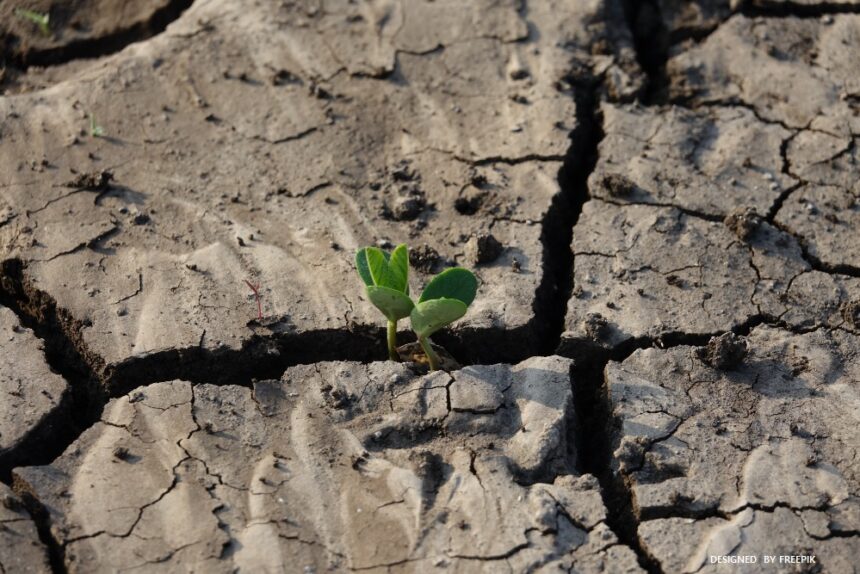Environmental damage and climate change have grown urgent worldwide problems needing group reactions. From an Islamic standpoint, maintaining the surroundings is not just a social but also a religious duty. This blog explores Islamic perspective on climate change and stresses human shared duty in tackling this important threat.
Stewardship in Islam: The Role of Khalifah (Custodianship)
The idea of Khalifah, or stewardship, is one of the fundamental Islamic values in the surroundings. Allah (SWT) names mankind as stewards of the Earth:
“It is He who has made you successors upon the earth…” (Qur’an, 35:39).
This verse emphasizes the obligation people have to properly run and protect the earth. Muslims are urged to be stewards of the natural resources, cut waste, and make sure their activities help present and next generations.
The Balance of Creation (Mizan)
The Qur’an makes regular reference to the idea of Mizaz which means balance and as Quran-e-pak tells us that Allah has created heaven and Earth and all his creations in perfect balance.
“And He has set up the balance, so that you may not transgress in the balance. And establish weight in justice and do not make deficient the balance.” (Qur’an, 55:7-9).
Through too high carbon emissions, deforestation, and pollution, climate change throws off this careful equilibrium. From an Islamic perspective, every action that throws off this equilibrium is a transgression of Allah’s will and the confidence placed upon mankind.
The Prophet’s Teachings on Environmental Conservation
The Prophet Muhammad (PBUH) underlined the need for sustainable living as well as resource protection. His teachings provide classic direction on environmental preservation:
- Planting Trees:
The Prophet said,
“If a Muslim plants a tree or sows seeds, and then a bird, or a person, or an animal eats from it, it is regarded as a charitable gift.” (Sahih Bukhari).
The value of afforestation and biodiversity is underlined in this account. Apart from the surroundings, planting trees pays continuous benefits.
- Avoiding Waste:
In Islam, wastefulness is strongly discouraged. Allah says,
“Indeed, the wasteful are brothers of the devils…” (Qur’an, 17:27).
This verse urges Muslims to adopt sustainable habits, such as reducing food waste, conserving water, and using resources judiciously.
Climate Change: A Test of Human Responsibility
Apart from an environmental problem, climate change presents moral and ethical questions. Islam sees environmental challenges as an exam of human responsibility..
“Corruption has appeared throughout the land and sea by [reason of] what the hands of people have earned so He may let them taste part of [the consequence of] what they have done that perhaps they will return [to righteousness].” (Qur’an, 30:41).
This verse captures how human activities including resource extraction and pollution affect the surroundings. It also reminds us to change, atone, and follow sustainable development-oriented policies.
Sustainable Living in Islam
Sustainability is deeply engraved in the teachings of Islam. Muslims are encouraged to live modestly,spend modestly and avoid doing everything in excess.
- Conserving Water: The Prophet (PBUH) instructed,
“Do not waste water, even if you perform your ablution on the banks of an abundant river.” (Ibn Majah).
This Hadith stresses the importance of conserving water, a vital resource, regardless of its abundance.
2.Reducing Carbon Footprints:Muslims can match their lives with Islamic values of moderation and environmental care by cutting excessive consumption, walking rather than driving, and adopting renewable energy sources that limit waste.
3.Recycling and Reuse:Reusing goods and supporting recycling fit the Islamic precept of Israf, which is to avoid waste.
Islam’s Call for Collective Action
Islam supports harmony and teamwork to handle world problems. Allah’s commands,
“And cooperate in righteousness and piety, but do not cooperate in sin and aggression.” (Qur’an, 5:2).
One shared issue spanning boundaries, religions, and races is climate change. Muslims are called to work with people, groups, and countries to lessen its effects and advance environmentally responsible living.
Practical Steps for Muslims to Address Climate Change
- Education and Awareness:
Promoting awareness in local communities and knowing the Islamic viewpoint on environmental responsibility could help to inspire action. - Eco-Friendly Practices in Mosques:
Implementing green projects including energy-efficient lighting, garbage recycling programs, and water conservation measures will help Mosques be the hubs of environmental education. - Advocacy and Policy Support:
Muslims should actively support activities against climate change including afforestation campaigns and renewable energy projects as well as policies. - Incorporating Sustainability in Daily Life:
Including sustainability into daily life can have a big influence from little deeds like cutting plastic consumption, composting, and energy saving.
The Spiritual Dimension of Environmental Responsibility
In Islam, environmental care is a kind of prayer (Ibadah). Saving Allah’s creation shows humility and thankfulness. Muslims can deepen their relationship with the Creator by preserving the earth:
“And do not cause corruption upon the earth after its reformation. And invoke Him in fear and aspiration. Indeed, the mercy of Allah is near to the doers of good.” (Qur’an, 7:56).
This verse encapsulates the essence of environmental responsibility as a means of seeking Allah’s mercy and blessings.
Conclusion
The Islamic viewpoint on climate change emphasizes the great interdependence among environmental care, ethics, and spirituality. Muslims should set an example by adopting the ideas of Khalifah, Mizan, and sustainability, therefore fostering global responsibility and helping to slow down pollution. Inspired by religion, let’s cooperate to preserve our earth for future generations.



